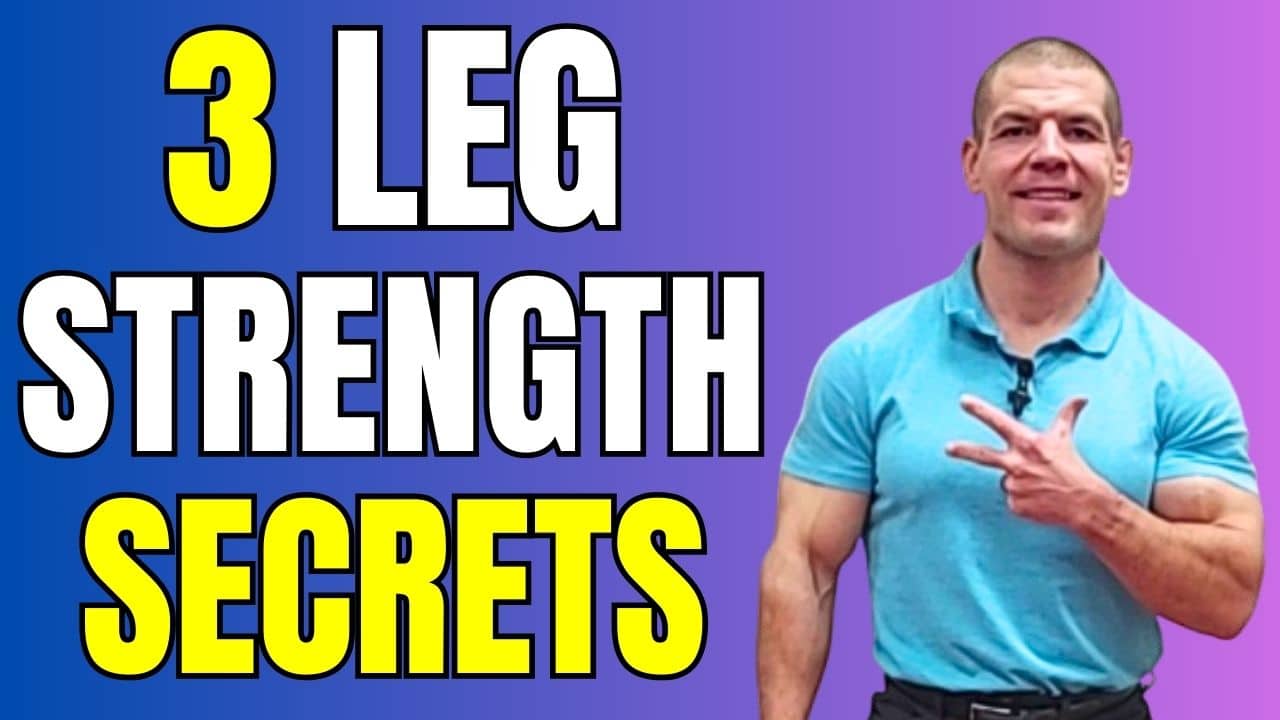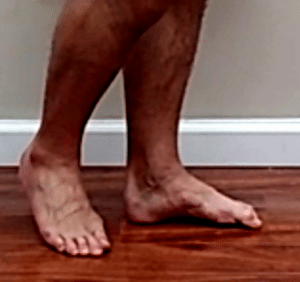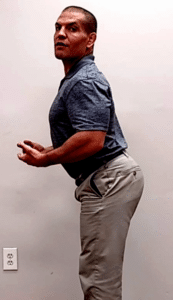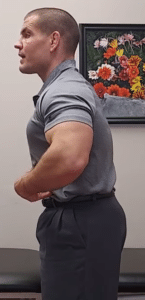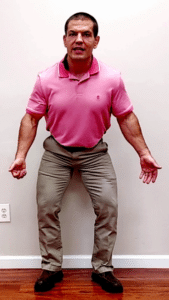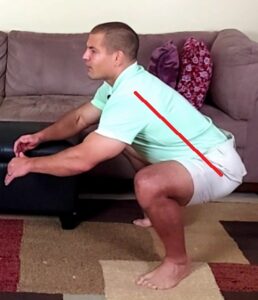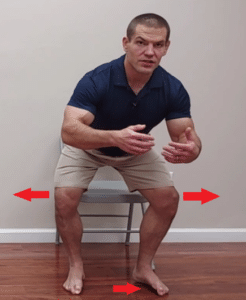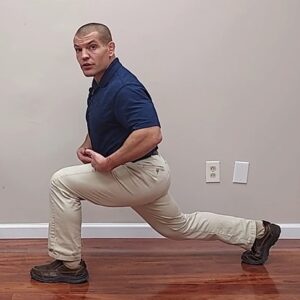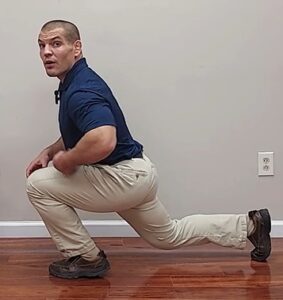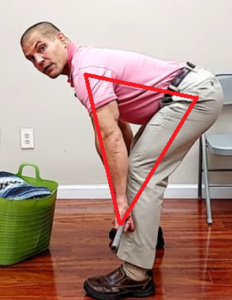There are 3 often overlooked secrets to stronger legs for seniors.
I don't mean specific exercises.
I'm talking about principles that can be applied to almost any leg strengthening exercise.
Watch the video below to learn what those principles are and how to apply them to some of the most common leg strengthening exercises.
3 Principles For Stronger Legs
These principles start before you even start doing your exercise. They all involve putting your body in the proper stance.
When you have your body in the correct position, you can produce the most force and power when you're actually performing the exercise.
And that starts from the ground up.
Strength Principle 1 - Foot Position
You want to set your feet in a comfortable position.
However, this isn't just a passive placement of your feet on the ground.
The arch of your foot is dynamically supported by muscles.
Slightly curl your toes and pulling the ball of your foot towards the heel of your foot.
This activate the muscles that support your arch and keep it from collapsing.
This becomes more important the heavier you are or the greater amount of weight that you're lifting.
Once you've set your arch unlock your knees just slightly.
Now you're ready to move on to Principle 2.
Strength Principle 2 - Spine Position
Next you want to set your spine position.
You don't want to have your spine too arched or too rounded when you're doing leg strengthening exercises.
Tilt your pelvis forward to the extreme and then backward to the extreme.
Then find a position midway between the two extremes.
This stacks the vertebrae in your spine in a position where they'll support you with the least amount of muscular effort.
Strength Principle 3 - Activate Your Glutes
The final tip is kicking in your glute muscles.
You can do this by turning your knee outward a little bit and then squeezing your buttock muscles.
Exercises For Seniors To Get Stronger Legs
Squat
If you're doing a squat, you want to set your feet, set your spine, turn the glutes on.
Focus on keeping your heels on the ground and your weight on the outer side of the heels to kick your knees out.
Sit back as you're squatting keeping your spine in a neutral position.
Note that this might not be a straight up and down position.
Also make sure to keep your knees turned out to activate your gluteus medius and minimus.
Lunge
Next, we'll move on to a lunge, which is essentially just a staggered squat.
To do a lunge, stagger one foot is forward and one foot is backwards.
The leg in front is the one that's going to be doing most of the work.
The wider you stagger your legs, the more of a glute strength exercise it becomes.
The narrower your legs are, the more of a quad exercise it becomes.
Dome your arch and then set your spine in a neutral position.
Then turn your front knee out slightly to active your glutes.
Raise up and down keeping your weight though the outer side of your heel in order to keep your glutes activated.
Deadlift
Finally, a deadlift is another leg strengthening exercise that works primarily on your glutes and hamstrings.
Many people see deadlifts as potentially dangerous, but you do deadlifts anytime you pick something up from the floor.
Now, the older you get, maybe the lighter your loads get. However, deadlifts are still a great functional exercise for anyone.
To do a deadlift, you want to set your foot position under the bar, doming your arch.
The bar should hit your shins if you're using a barbell.
Once you set your foot position underneath the bar, lean your weight back onto your heels for a deadlift.
Next find a spinal neutral position.
That's really important for this exercise because if you're too rounded, you put yourself at risk for hurting the discs in your lower back.
If you're too arched, you jam the joints together in your lower back and activate your back extensor muscles too much.
This can put you at risk for a muscle strain.
Finally, once you've found spinal neutral, then kick you knees outward. That activates your gluteus medius and gluteus minimus.
Next, you'll drive your heel down into the ground and drive your hips forwards using your gluteus maximus (butt muscless) and hamstrings.
Keep your abdominal muscles tight to help maintain your spinal neutral position.
Once you get to the top of the motion, squeeze your glutes and abdominals.
Don't lean backward excessively!
Allow your hips to come back forward and repeat for the desired repetitions.
Conclusion
In summary, the 3 overlooked steps to stronger legs for seniors are:
- set your feet
- find a spinal neutral position
- activate your glutes
Need Help To Get Stronger Legs
If you live in the St. Louis and need help to improve your leg strength, we'd be happy to help.
Just tap the button below to request an appointment with one of our specialist physical therapists.

